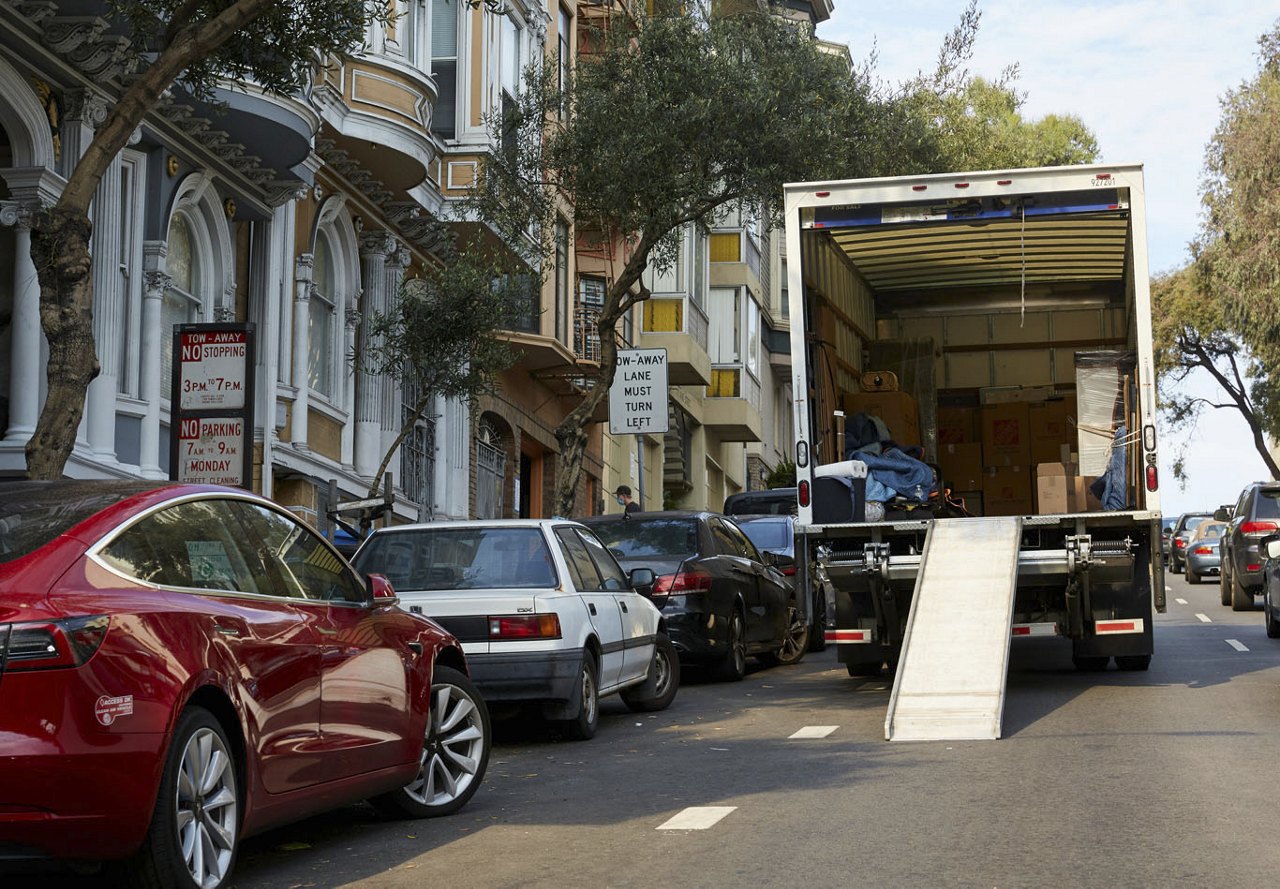Moving Costs: Professional Movers vs. DIY Moving Guide
How much do movers cost, and is it worth hiring professionals or tackling the job yourself? Deciding between professional movers and a DIY move can be tricky, especially when budgeting is a top priority. In this guide, we’ll break down moving costs, compare your options, and provide expert insights to help you choose the best approach for your move.
Understanding Your Moving Options: Professional vs. DIY
The decision between hiring professional movers or tackling a DIY move typically comes down to two key factors: time and costs. To make the best choice for your situation, you'll need to carefully consider which resource matters most to you:
- Professional movers are ideal if you prioritize saving time and reducing stress
- DIY moving with friends and rental trucks maximizes cost savings
According to recent moving industry data, professional moving companies relocate millions of Americans annually. However, costs vary significantly based on several factors: moving distance (local, interstate, or intrastate), home size, volume of belongings, and whether you handle the packing yourself.
Professional Moving Company Costs: What to Expect
Hiring professional movers offers significant advantages: reduced time investment, lower stress levels, no physical strain, and superior efficiency. However, these benefits come with higher costs and require thorough research to find reliable movers. For an accurate cost estimation, consider these average moving expenses from industry data:Local moving services (under 100 miles) within state borders typically cost:
- $80-100 per hour for basic service
- Additional movers cost $25-50 per person extra
- Interstate or cross-country moves (over 100 miles) generally range from $2,000-$5,000
For local moves, expect these typical timeframes and costs:
- One-bedroom apartments: 3-5 hours, averaging $200-500
- Two-bedroom apartments: 5-7 hours, typically $400-700
- Three-bedroom houses: approximately 10 hours, up to $1,000
- Four-bedroom houses: expect around 20 hours, approximately $2,000
Long-distance moving costs depend primarily on weight and distance. As a reference point, furnishings from a 1,000-square-foot apartment typically weigh about 5,000 pounds, while a 2,800-square-foot, four-bedroom home's contents usually reach around 20,500 pounds.
Leading national moving companies like North American, Atlas Van Lines, United Van Lines, Bekins, Mayflower, National Van Lines, and Allied offer free quotes for cross-country relocations from popular hubs like Houston, Austin, Denver, Atlanta, New York City, or even Los Angeles. Local moving companies specializing in regional moves are also readily available.
Scott Michael, President and CEO of the American Moving & Storage Association, emphasizes the importance of proper mover verification: "Look for the red flags, such as no physical address or phone number online, or maybe if the price is suspiciously low. And don’t rely on over-the-phone estimates. Have the movers come to your home or do a virtual home survey if they offer that. Lastly, going through an association is a great way to avoid these scams.”
Financial expert Harrine Freeman, founder of H.E. Freeman Enterprises recommends considering temporary moving insurance: "Some moving companies offer a temporary insurance policy, or you could ask your home or renters insurance company if they do as well. The great thing about it is that it reduces stress because you know that if something does happen to your belongings, you will have the money to replace them without a long-term commitment to a policy. It’s a policy meant for this move, specifically."
DIY Moving: Understanding the True Costs
The DIY approach offers complete control, potential cost savings, flexible scheduling, and eliminates the need for mover research. However, it demands significant time investment and physical effort. While appearing more economical, DIY moving isn't entirely free.Transportation costs form a major part of DIY moving expenses. While borrowing trucks from friends can help, rental vehicles often become necessary. Local truck rental costs vary significantly:
- Small truck daily rental: approximately $20
- Larger truck multi-day rental: up to $160
- Additional costs include:
- Mileage charges ($.069-$0.79 cents per mile)
- Rental deposits (up to $150)
- Fuel expenses ($5-20)
Long-distance DIY moves using rental trucks typically range from $500 to 1,700, excluding fuel, deposits, and mileage charges.
Cost-Effective Moving Strategies
Several compromise options can help optimize your moving budget. Instead of full-service moving (including packing, loading, hauling, unloading, and unpacking), which can add up to $400 extra, consider hybrid approaches like self-pack moving services, whether you utilize a truck or moving container. These companies handle transportation while you manage packing and loading at your own pace.Essential moving supplies remain consistent regardless of approach:
- Containers (boxes or plastic bins)
- Protective materials (bubble wrap, tissue paper)
- Packing tape
- Labeling supplies
Professional organizer Tonia Tomlin, founder of Sorted Out, suggests buying supplies in bulk: "One of the biggest misconceptions in moving is thinking you need less supplies than you do – in the end, time is wasted with three or four trips back to the store. Make one trip. It’ll save you time and sanity, and the rest can be returned.”
Tomlin emphasizes the importance of personalizing your approach: "Moving often comes about as a result of major life events. There are a lot of reasons why people move, and it’s not easy physically, mentally, or emotionally. You’ve got to have the right approach for you - what will work best for you."
Making Your Moving Decision
Everyone's moving needs differ – some prioritize cost savings while others prefer a hands-off approach. According to Freeman, "Proper move budgeting is essential. Consider all factors: new furniture purchases, items to sell, potential storage needs, and maintaining emergency funds. Tackle preparations in phases, whether collecting supplies over time or gradually building your moving budget."Whether you choose time savings with professional movers or cost savings through DIY, prioritize self-care during the process. Create a realistic budget, conduct thorough research, and carefully plan your transition to your new apartment.
Browse Greystar Apartments: Your Next Home Awaits
Ready to start planning your move? Browse Greystar's collection of apartments nationwide to find your perfect next home. With virtual tours, detailed floor plans, and professional leasing teams ready to assist, finding your new space is just a click away. The information presented on or through this Website is made available solely for general information purposes. We do not warrant the accuracy, completeness, or usefulness of this information. Any reliance you place on such information is strictly at your own risk. We disclaim all liability and responsibility arising from any reliance placed on such materials by you or any other visitor to this Website, or by anyone who may be informed of any of its contents. Any reference to amenities, services, rules, policies, or procedures at a Greystar apartment community is general in nature, and each Greystar apartment community may have amenities, services, rules, policies, and procedures that differ from those referenced on this Website. Please consult with your Greystar apartment community for the exact amenities, services, rules, policies, or procedures applicable.
This Website may include content provided by third parties, including materials provided by other users, bloggers, and third-party licensors, syndicators, aggregators, and/or reporting services. All statements and/or opinions expressed in these materials, and all articles and responses to questions and other content, other than the content provided by Greystar, are solely the opinions and the responsibility of the person or entity providing those materials. These materials do not necessarily reflect the opinion of Greystar. We are not responsible, or liable to you or any third party, for the content or accuracy of any materials provided by any third parties.







